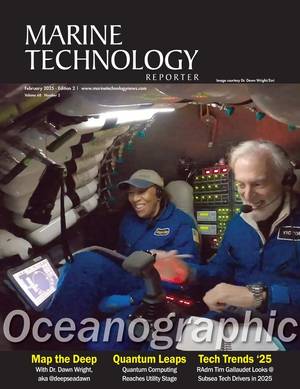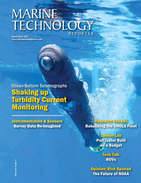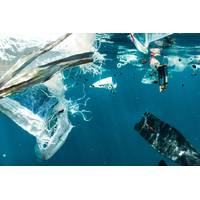
Plymouth Marine Lab: Study Shows Benefits of Cross-Country Plastic Pollution Management
to combine ocean and economic models to establish the benefits of coordinated plastic pollution management across multiple nations sharing an ocean border.The new research was a collaborative effort between oceanographers and social scientists at Plymouth Marine Laboratory, and economists from University of Aberdeen, University of Glasgow, the Berlin School of Economics in Germany and Clark University in the United States
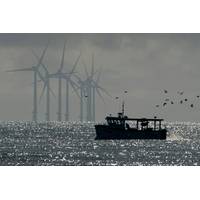
PML Study Examines UK Wind Farm, Fishermen Conflicts
Researchers at Plymouth Marine Laboratory (PML), alongside colleagues at the University of Aberdeen, found that the majority of UK fishermen feel their livelihoods are being threatened by the rapid expansion of offshore wind farms (OWFs), with impacts felt across all vessel sizes and fleet sectors.The study reveals that while the UK leads globally in offshore wind energy production, providing 45% of European capacity and 24% of global capacity, this growth is creating significant spatial conflicts with the commercial fishing industry as both sectors compete for limited marine space. Key findings:Fi

Using Ocean Robots to Dive into Offshore Wind Farm Wake Effects
– and whether the turbulence the turbine blades make in the air translates to the ocean.PELAgIO - impacts of offshore windfarmsThe glider deployment is one part of the PELAgIO (Physics-to-Ecosystem Level Assessment of Impacts of Offshore Windfarms) project, led by Prof Beth Scott of the University of Aberdeen, and funded through the UK’s National Environmental Research Council (NERC) in the Ecological Consequences of Offshore Wind (ECOWind) research programme.Dr Charlotte Williams a physical oceanographer is leading the fieldwork for NOC to capture data on how windfarms might be impacting
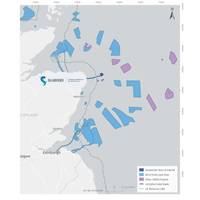
Global Maritime Tapped to Support Floating Wind Project
Subsea7, to provide engineering services for the PREDICT 2.0 project.The PREDICT 2.0 initiative is a collaboration between the Salamander Offshore Wind Farm, a proposed 100 MW floating project and the University of the Highlands and Islands’ (UHI) Environmental Research Institute and the University of Aberdeen and is designed to develop a better understanding of fish migration patterns.Salamander Offshore Wind Farm, in partnership with UHI is deploying environmental monitoring equipment alongside its metocean survey; as part of this an echosounder will be deployed on the seabed close to a FLiDAR

CCS, Hydrogen Challenges a Focus at SPE Offshore Europe 2023
organic hydrogen carriers (LOHC) to industrial European demand centres.A paper by Kent plc will present recent modelling work carried out supporting a Dutch North Sea operator to understand the change in risk on their production platform due to the newly produced hydrogen passing through it.The University of Aberdeen has mapped the hydrogen storage capacities of UK offshore hydrocarbon fields and explored potential synergies with offshore wind. Its findings estimate a total hydrogen storage capacity of 3454 TWh within 96 fields investigated, significantly exceeding the determined 120 TWh seasonal domestic
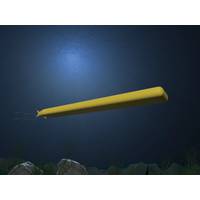
Robotics: The Next Gen in Subsea Vehicles
head, with an inductive connector for charging and data transfer, which acts a little like an in-air refuelling of fighter jets. “This means there’s minimal impact from waves because the docking is at a controlled depth,” says Lima, who has an MSc in Subsea Engineering from University of Aberdeen and a MSc in Innovation and Entrepreneurship from University of Oslo. There’s also a through moon pool-based handling system for recovering the AUV on deck, safely.The system will support subsea survey in shallow waters as well as in deep and ultra-deep waters, operating a wide variety

Partners Lead New Swarm Technology Research
U.K. based marine technology company Autonomous Robotics Ltd (ARL) will collaborated with Aberdeen’s Robert Gordon University (RGU) to research simultaneous, distributed and scalable localization system for a swarm of autonomous underwater sensor flying nodes.The research will aim to further enhance the capability of the flying node system and further reduce the cost and time for ocean bottom seismic surveys.RGU is a leading Scottish university in Aberdeen, the oil capital of Europe, and its School of Engineering has an outstanding track record of working in collaboration with industry.The Swarm

Scottish Carbon Capture and Storage Project Underway
. The Acorn CCS Project has now begun a feasibility study after concluding funding from the European Union’s funding round Accelerating CCS Technologies (ACT). The ACT Acorn study is being led by Pale Blue Dot Energy with project partners Scottish Carbon Capture & Storage (University of Aberdeen, University of Edinburgh and Heriot-Watt University), University of Liverpool, Bellona (Norway) and Radboud University (The Netherlands). The study will demonstrate the commercial and regulatory aspects of CCS project development in the U.K. This would include the commercial aspects
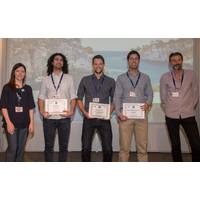
60th OCEANS Conference Held in Aberdeen
sensing, imaging and instrumentation, fisheries and aquaculture, to exciting cutting edge technologies like marine renewable energy, and unmanned underwater vehicles in defense applications. The Plenary speakers at the 60th Anniversary of OCEANS included: Professor Dame Anne Glover, University of Aberdeen; Dr. Gareth Davies, Aquatera; Dr. Stef Kapusniak, SMD and Dr. Eric Delory, Plocan. A robust Student Poster Competition (SPC) was also part of the OCEANS Aberdeen conference. The winners of this year’s competition were Klemen Istenic from the University of Girona (First Place)
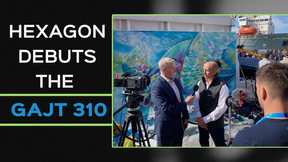
 February 2025
February 2025
